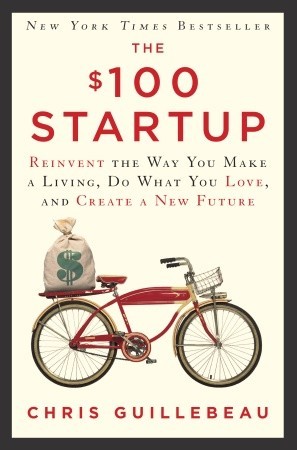Remy Rose reviewed The $100 startup by Chris Guillebeau
Review of 'The $100 startup' on 'Storygraph'
2 stars
I didn't know anything about business or entrepreneurship before reading this book. Now I know at least one thing, namely that I don't like it. As pointed out by other reviewers, the advice this book contains is so obvious that even a no-talent hack like myself finds it irrelevant. To spare potential readers the trouble, allow me to boil it down for you.
Business opportunities sometimes cost as little as $100 dollars, provided you are either extremely lucky or have the right connections.
Make sure you offer something that people will buy.
Sell your product/service at the price it is worth.
Don't just plan to start a business, actually do it.
Make sure people know you have something for sale.
Sometimes the best marketing is free.
Hire employees/grow your business/expand into new areas/quit your day job/etc if you want to.
Don't hire employees/grow your business/expand into new areas/quit your day job/etc if you don't want to.
* Make sure you're actually making any money.
Other people have critiqued the efficacy of this book much better than I could, so instead I'd like to point out other problems I think I see. First of all, the vast majority of the book's case studies are businesses who don't offer anything essential. In fact, on the spectrum of necessary goods to luxury goods, the products/services herein fall very largely towards the latter. Depending on how much of a utilitarian you are, that might be a problem in its own right. More importantly, it's clear that not everyone can follow the advice in this book. I don't know how many abstract and unnecessary products/services the world can support, but it seems to me like there are enough already. Even worse, many of the case studies offer things that would primarily be of use to other businesses and entrepreneurs. Unless I'm mistaken, there is a conundrum here. I would expect the author to suggest that prospective entrepreneurs (his target audience) should not waste money on unessential products/services for their startup. However, those are the very products/services he seems to recommend that the budding entrepreneur sell! Who is supposed to buy them, then? People who haven't read this book?
All throughout, I was troubled by a vague sense that there was something inherently immoral or at least amoral about this book's message. That should be saying something, since I'm not a very reputable character myself. I still can't place my finger on what it is that bothers me, but I was somewhat mollified by the few instances where the people involved did some good in the world. That's worth one more star than I was going to give, I suppose.

